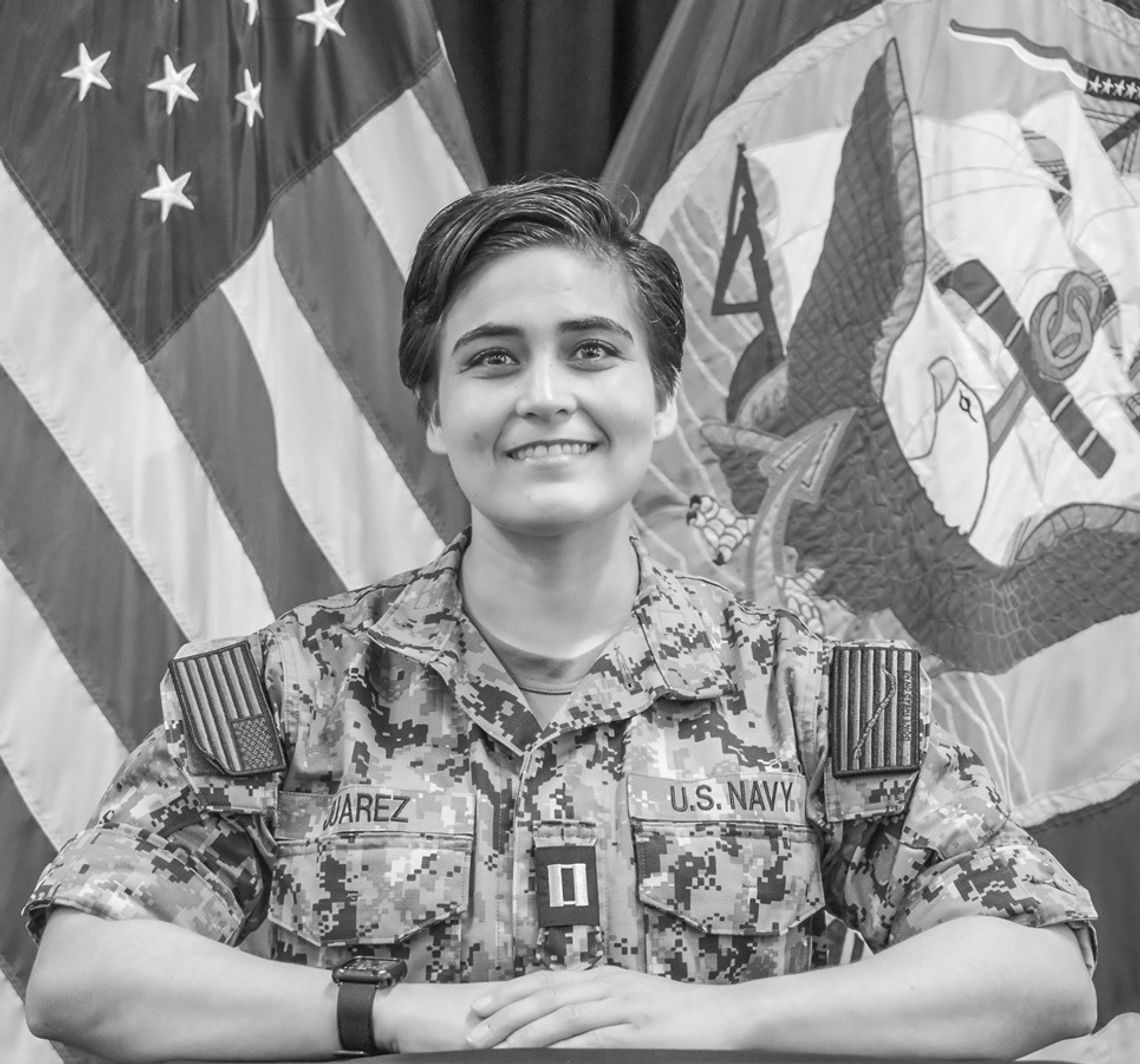Lt. Ariana Juarez, a resident of Pipe Creek, Texas, is training at Naval Chaplaincy School to serve as a chaplain for America’s seafaring warfighters.
Juarez joined the Navy to answer a calling.
'Joining the Navy was a calling within a calling,' said Juarez. 'After answering my ministerial call within chaplaincy doors I thought had slammed shut, they suddenly reopened with the Navy.'
More than 800 Navy chaplains from more than 100 faith groups, including Christian, Jewish, Muslim and Buddhist, serve in the Navy Chaplain Corps. After seven weeks of training at Naval Chaplaincy School and Center at Naval Station Newport, Rhode Island, the chaplains set on their mission to provide support and guidance to sailors, Marines and Coast Guardsmen at sea and on the shore.
“In conversations about national defense, you hear about great power competition and competition among peers and nearpeers,” said Capt. Charles Varsogea, chaplain and commanding officer of the Naval Chaplaincy School. “The people of the U.S. Navy, Marine Corps and Coast Guard have no peers. Part of what makes them peerless defenders of the Constitution is their determination to do so with body, mind, and spirit. No nation on earth can replicate the fighting spirit of our sea services. The graduates of our Basic Leadership Course are trained, developed, and inspired to give our seagoing warfighters the strength of spirit necessary to complete their missions with honor.”
Chaplains and religious program specialists (RP) play a critical role in helping the Department of the Navy achieve and maintain a ready force through the delivery of professional religious ministry and compassionate pastoral care. Chaplains and RPs are embedded within commands operating at sea and ashore to ensure 24/7 availability. They provide a source of comfort and refuge that enables service members and their families to practice and grow in their faith and to face personal and professional challenges.
“Navy chaplains encourage their shipmates to connect to the ultimate good and to a community that shares their convictions about what or who that good is,” said Varsogea. “Navy chaplains help people find the value, the meaning, and the purpose of their lives. Navy chaplains support people in their willingness to serve and sacrifice for the greater good.”
In the Basic Leadership Course, Navy chaplains learn to tailor religious ministry to life in the sea services, said Varsogea. They also learn how to facilitate the free exercise of religion for people of faiths other than their own. They learn service specific ways to care for all people and they learn how and when to render their best military advice.
'Chaplaincy provides me a sense of spiritual fulfillment unlike any other,' said Juarez. 'Working as a chaplain, I am able to serve alongside others from all walks of life, of different faiths and non-faiths alike.'
With 90% of global commerce traveling by sea and access to the internet relying on the security of undersea fiber optic cables, Navy officials continue to emphasize that the prosperity of the United States is directly linked to recruiting and retaining talented people from across the rich fabric of America.
Juarez serves a Navy that operates far forward, around the world and around the clock, promoting the nation’s prosperity and security.
“We will earn and reinforce the trust and confidence of the American people every day,” said Adm. Lisa Franchetti, chief of naval operations. “Together we will deliver the Navy the nation needs.”
Juarez has many opportunities to achieve accomplishments during military service.
'As I am in the beginning phases of my Naval career, I am most proud of graduating from Officer Development School, as the first naval officer within my family,' said Juarez.
Juarez can take pride in serving America through military service.
'Serving in the Navy means purpose as I answer God’s call, protecting those I love and the values we uphold,' added Juarez. 'It also means spiritual growth as I continue to learn as God changes my heart and mind.'






.png)
